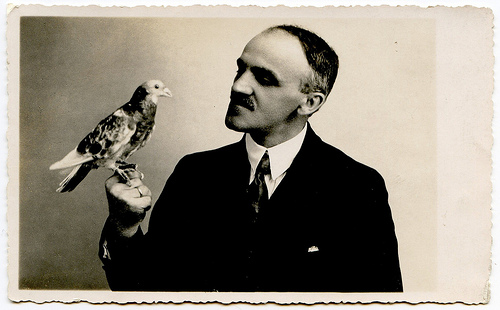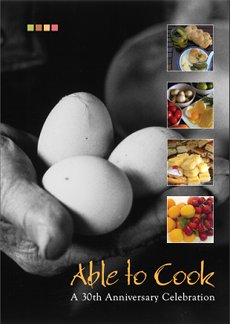It is quite some time since I have heard from Dr Ruth Pastry, but at last she has broken her silence. Here is her letter:
Dear Mr Key : Last week I read your postage Poultry Yards Of The Grand Archdukes and, though I was not impressed, I could not help but be intrigued by your reference to a breakfast recipe which involves, and I quote, “more eggs than you can shake a stick at”. How many eggs is that?, I wondered. The only indication you give, and I quote again, is “a goodly number of eggs”. This is less than helpful. “A goodly number”, in and of itself, is not a measurable quantity. A writer with more concern for his or her readers would be precise in these matters, and tell us plainly how many eggs we would have to assemble before we were no longer able to shake a stick at them.
Because of your laxity, I was put in the position of having to find out for myself. I went for a walk in the woods and came back carrying a stout and sturdy stick. I think it was a branch from a hornbeam. It was a very shakeable stick, as I ascertained by shaking it experimentally a few times while still in the woods. Squirrels scattered as I shook it, and there was movement in shrubbery as if a small woodland creature had been startled. Had I had with me my net, I would have used it to entrap the creature, whatever it was, and then rained blows upon it with the stick until ’twere dead, and taken it home with me to boil for a snack, garnished perhaps with a tomato and some basil. As it was, I was netless, so I returned home with just the stick.
I then set to preparing my test area. You know, I think, how thorough I am. I shoved the kitchen table back against the kitchen wall, thus creating sufficient space for me to be able to shake the stick without risking damage to my many and various kitchen appurtenances. Next, I opened my refrigerator, and removed from it every single egg currently in my possession, placing them, in their carton, on my countertop. I was somewhat dismayed to note that I had only five eggs, from the carton’s original complement of six. My instinctive thought was that five was unlikely to be the “goodly number of eggs” you prescribed. However, instinct is one thing, and empirical evidence is another thing entirely. It was clear to me that the absolute minimum possible indicated by “a goodly number of eggs” was a simple plurality, in other words, two eggs.
Before continuing, I fetched from a cubby a fresh ledger, dozens of pages of creamy paper divided by faint blue lines into squares. In this, I would tabulate my results, using several different coloured pencils, which I duly sharpened with a pencil sharpener. I then removed two eggs from the carton and placed them on the table, taking care to position them in such a way that they would not roll off the tabletop and smash to squelchy ruin upon the floor linoleum. I had already made certain the tabletop was level, using a Van Der Hoddle Levelometer, a splendid device which I find far more effective than the common spirit level, and which uses no spirits whatsoever.
With the two eggs in place upon the table, as they would be were I to be embarking upon my breakfast preparation, I shook the stick at them. I suffered no hindrance, and could have gone on shaking the stick for hours upon end, had I been so minded. But I shook the stick only for long enough to become convinced beyond any shade of doubt that two was not the “goodly number of eggs” defined as “more eggs than I could shake a stick at”. I noted the results in the ledger, painstakingly, and then removed a third egg from the carton and placed it next to the original brace of eggs on the table, proceeding to shake the stick once again.
You will, I suppose, have worked out that soon enough I tried four, then five, eggs, with identical outcomes. Pleased as I was with the severe beauty of the tabulation of results in my ledger, I had now exhausted my supply of eggs. For a madcap moment, I considered propping a mirror upon the kitchen table, thus doubling the visible number of eggs, thinking by doing so I could somehow “trick” the stick. Two immediate objections to such tomfoolery rapidly presented themselves. First, the positioning of the mirror would be enormously complicated if I were to be able to present the appearance of the intermediate egg numbers, from six through nine. Second, the stick was just a stick, from a hornbeam, probably, and did not in itself have sense perception, visual or otherwise. The impossibility of shaking a stick at “a goodly number of eggs”, whatever that number might be, was, I felt sure, dependent not upon the stick itself, but on the quantity of eggs one was attempting to shake it at. And in turn, that surely meant they had to be real eggs, not mirror images nor any other eggs of illusion.
Now, I was reluctant to march off to my nearest egg shop to buy the extra eggs I would need. For one thing, I had no idea how many eggs that might be. Also, what was I going to do with them all when my experiment was done? One can only eat so many eggs before becoming disgusted at the prospect of yet another egg-based meal, and it would be a terrible sin, and a waste of money, to let them rot uneaten. I thought it unlikely that the proprietor of the egg shop would be willing to allow me to return any bought but unused eggs, for he is not the most amiable of shopkeepers. Indeed, more than once I had had blazing arguments with him, and not always on the subject of eggs.
Then I recalled that there had been recent tidings from the farmyard of Mad Old Farmer Frack. It was said that he was no longer devoting himself exclusively to his bellowing cows, but had installed a hen coop, with hens in it, on the farm. Where there’s hens there’s eggs, I said to myself, not wholly grammatically, but memorably. I wondered if it was an old country saying. I resolved to ask Old Farmer Frack if this were so, although the main business of the visit to him I now embarked upon, without delay, was to borrow from him as many eggs as possible.
“Hail to thee, Old Farmer Frack,” I cried, within the hour, leaning against his fence, “I was wondering if it would be possible for me to borrow from you as many eggs as possible? I will bring them back before nightfall.”
The mad old farmer was standing in the middle of one of his fields, looking mad and farmerly, doing something with a spade. When he heard me, he looked up, let fall the spade, and came bounding over to me at inhuman speed. His eyes were bloodshot and his hair was a tangle of filth.
“My eggs are not for borrowing,” he said, “Under any circumstances. But for an old friend like you, Dr Pastry, I might consider renting them out.”
And so we haggled. We had done so many times before, over the years. The thing is, I have advanced haggling skills, whereas Mad Old Farmer Frack is hopeless and inept in this area as in so many others. Within a few minutes, I had him agreeing to let me take away hundreds upon hundreds of eggs in return for a photocopy of my bus pass and a sprig o’ myrtle. Of course, I then had to scoot off to town to get the photocopy, and pop in to Myrtle Sprigs R Us® to get the sprig, but that was soon accomplished.
When I returned to the farm, Mad Old Farmer Frack was nowhere to be seen. I thought he might be herding his bellowing cows from field to field, pointlessly, and went a-roaming to see if I could spot him, and them. I found the cows, all of them, without their farmer, standing around in a distant field beyond a drainage ditch, in the rain. I trudged back through muck and puddles to the hen coop, and poked my head in for a look-see. Lots and lots of hens, but no farmer, and, more to the point, no eggs. A couple of the more savage hens made moves to attack me, but I remonstrated with them in a sort of screechy hensprache I picked up from a hen person I met on my travels, long ago, and they were immediately pacified, and not just pacified but put into comas, from which they will only awake when next it is time for them to lay an egg.
That done, I wandered aimlessly around the farm for a few hours before giving up and going home, cursing Mad Old Farmer Frack and throwing pebbles at crows in my annoyance. I unlatched the door of Pastry Cottage, and there, in my kitchen, was the mad old farmer himself, waving a stick at the kitchen table upon which teetered a gigantic pile of eggs. He looked around as I came in.
“Ah, there you are, doctor,” he said in his mad voice, “I was so interested in what you were telling me about your egg experiment during our haggling process, I thought I’d carry on where you left off while you were fetching the agreed rental. Speaking of which, do you have the photocopy of your bus pass and the sprig o’ myrtle?”
Nonplussed, I handed over the items without a word.
“So far I am up to a hundred and sixty-two eggs,” said Old Farmer Frack, “And still nothing is impeding me from shaking the stick at them.”
“Have you been tabulating the results in the ledger?” I asked, not unreasonably.
“Oh… I forgot to do that bit,” he said. At least he had the grace to look shamefaced.
“Then we must begin again, from six upwards,” I said, “Otherwise the experiment will not have been conducted with sufficient rigour.”
“Yes, yes, of course,” said the mad old farmer, and I was delighted to see that he immediately began to remove a hundred and fifty-six eggs from the table, one by one, with surprisingly dainty movements, placing them hither and thither about the kitchen wherever he was able to find space among the many and various kitchen appurtenances I mentioned earlier, only a few of which he had broken or dented when clumping about before suddenly remembering his daintiness upon my arrival home.
I have to say that tackling this as a two-person job has been a marked improvement. I can concentrate on the majestic sweeping penmanship of my ledger entries, while Mad Old Farmer Frack shakes the stick. As a farmer, he is able to shake a stick with much more conviction than I can muster, for of course he shakes a stick at something most days, whereas I only rarely do so. We are taking it in turns to move the eggs from their temporary storage places, one at a time, to join the eggs accumulated upon the table.
I am beginning to worry if the legs of my kitchen table will continue to support the ever-increasing weight of eggs, and, as I write, have sent Mad Old Farmer Frack off to fetch lengths of titanium cut to size, from Old Ma Purgative’s Cut To Size Titanium Reinforcement Rods Shoppe. I scribbled a note for him to take, explaining to Old Ma Purgative that the table is currently supporting six hundred and forty eggs, and asking that she supply titanium rods sturdy enough to support twice that number. I added, of course, the relevant measurements, of both my table legs and the approximate weight of eggs.
Fairly soon, however, we are going to run out of eggs. Between us, I am sure we will work out how to get more, by hire or theft or, as a last resort, cash purchase. Meanwhile, I am beginning to wonder just how many eggs we will have piled on my reinforced table before I pause, coloured pencil held steady over my ledger, and the time comes when Mad Old Farmer Frack raises the hornbeam stick, to shake it yet again, and finds – oh! sweet mystery of life, or rather of egg-numbers – that he is completely unable to do so. When that time comes, Mr Key, I will write to you again, requesting further details of your eggy breakfast recipe, which I have no doubt is both succulent and toothsome.
Yours waiting for Mad Old Farmer Frack to come crashing through the door,
Dr Ruth Pastry




